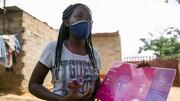-
Country Pages
-
Asia & the Pacific
- Afghanistan
- Bangladesh
- Bhutan
- Cambodia
- China
- India
- Indonesia
- Iran, Islamic Republic of
- Lao People's Democratic Republic
- Malaysia
- Maldives
- Mongolia
- Myanmar
- Nepal
- Pakistan
- Papua New Guinea
- Philippines
- Sri Lanka
- Thailand
- Timor-Leste
- Viet Nam
-
Eastern Europe & Central Asia
- Albania
- Armenia
- Azerbaijan
- Belarus
- Bosnia and Herzegovina
- Georgia
- Kazakhstan
- Kosovo Office
- Kyrgyzstan
- Moldova, Republic of
- North Macedonia
- Serbia
- Tajikistan
- Türkiye
- Turkmenistan
- Ukraine
- Uzbekistan
-
Arab States
- Algeria
- Djibouti
- Egypt
- Iraq
- Jordan
- Lebanon
- Libya
- Morocco
- Oman
- Palestine
- Somalia
- Sudan
- Syrian Arab Republic
- Tunisia
- Yemen
-
East & Southern Africa
- Angola
- Botswana
- Burundi
- Comoros
- Congo, the Democratic Republic of the
- Eritrea
- Eswatini
- Ethiopia
- Kenya
- Lesotho
- Madagascar
- Malawi
- Mauritius
- Mozambique
- Namibia
- Rwanda
- Seychelles
- South Africa
- South Sudan
- Tanzania, United Republic of
- Uganda
- Zambia
- Zimbabwe
-
Latin America & the Caribbean
- Argentina
- Bolivia, Plurinational State of
- Brazil
- Chile
- Colombia
- Costa Rica
- Cuba
- Dominican Republic
- Ecuador
- El Salvador
- Guatemala
- Haiti
- Honduras
- Mexico
- Nicaragua
- Panama
- Paraguay
- Peru
- Uruguay
- Venezuela, Bolivarian Republic of
- Caribbean (multi-country)
-
West & Central Africa
- Benin
- Burkina Faso
- Cabo Verde
- Cameroon
- Central African Republic
- Chad
- Congo
- Côte d'Ivoire
- Equatorial Guinea
- Gabon
- Gambia
- Ghana
- Guinea
- Guinea-Bissau
- Liberia
- Mali
- Mauritania
- Niger
- Nigeria
- Sao Tome and Principe
- Senegal
- Sierra Leone
- Togo
-

UNFPA Angola
After enduring 40 years of almost continuous war, Angola was in disarray when peace accords were finally signed in 2002. Since then, the country’s economy has grown rapidly, but inequities persist, and nearly 40 per cent of Angolans live in poverty and maternal mortality and teenage pregnancy remain high. Since 1978, UNFPA has been working to: increase access to reproductive health (including family planning and treatment of obstetric fistula) and HIV prevention services; ensure sustainable population growth and development (through improved availability of reliable information); and increase gender equality.
Population
- Population aged 0-14
- Population aged 15-64
- Population aged 65+
Sexual and reproductive health
- Births attended by skilled health personnel
Family Planning
- Modern method
Education
Gender, Rights, and Human Capital
Harmful Practices
Population Pyramid
Life Expectancy
Total fertility rate
News
Mozambique, Angola help girls manage menstrual health and hygiene in crisis and beyond
It can be challenging enough when a girl gets her first period – she may not even know what is happening to her body.…
“I had no idea what was happening” – Menstrual health needs surge for refugees
Women and girls displaced by conflict face extraordinary hardships – not least of all, the effect of exile on their…

